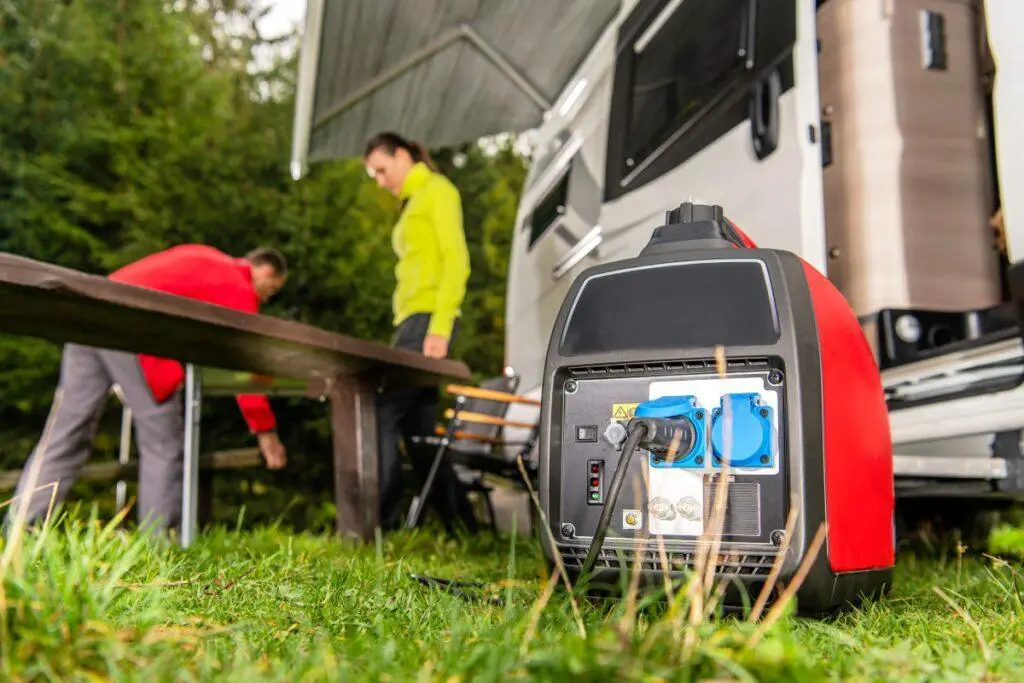One of the decisions that RV owners often face is whether to leave their RV inverter on or turn it off when the vehicle is plugged in. This is a common question, and the answer depends on a variety of factors. In this article, we will explore the advantages and disadvantages of leaving your RV inverter on when plugged in, helping you make an informed decision.
What is an RV Inverter?
An RV inverter is an electronic device that converts DC (direct current) power from your RV’s batteries into AC (alternating current) power for use in your RV appliances. It allows you to use your usual household appliances and electronics while you are off-grid or when there is no electrical hookup available.
Advantages of Leaving the RV Inverter On
Leaving your RV inverter on when plugged in can provide several advantages:
- Continued use of AC appliances: When your RV is plugged into shore power, leaving the inverter on allows you to use your AC appliances and electronics without any interruption. You can watch TV, use your microwave, charge your laptop, and enjoy other amenities even if you are not using the battery power.
- Power backup during a power outage: Even if you are plugged into shore power, there is always the possibility of a power outage. By leaving your RV inverter on, you have a backup power source to keep your essentials running until the power is restored.
- Battery charging: Some RV inverters have a built-in charger that can charge your RV batteries when the vehicle is plugged in. Leaving the inverter on ensures that your batteries are being charged and maintained properly.
Disadvantages of Leaving the RV Inverter On
While there are advantages to leaving your RV inverter on, there are also some disadvantages to consider:
- Standby power consumption: Leaving the inverter on when plugged in consumes a small amount of standby power. This can have a slight impact on your RV’s overall power consumption and could potentially drain your batteries faster if left unused for an extended period.
- Increased heat generation: When the inverter is continuously running, it generates heat. If your RV is parked in a hot climate, leaving the inverter on can contribute to additional heat buildup inside the vehicle, potentially affecting the performance and lifespan of the inverter.
- Higher risk of electrical issues: The longer the inverter is left on, the higher the chances of encountering electrical issues. Although these issues are rare, they can occur due to factors such as power surges or faulty wiring.
Factors to Consider
When deciding whether to leave your RV inverter on or not, consider the following factors:
- Usage: If you frequently use AC appliances or need backup power during outages, leaving the inverter on makes sense. However, if you rarely use AC appliances or have alternative power sources during outages, turning the inverter off might be more practical.
- Battery health: If your RV has a separate battery charger, leaving the inverter on is not necessary for battery charging. However, if your inverter has a built-in charger, leaving it on can ensure that your batteries remain in optimal condition.
- Climate: Consider the outside temperature and climate conditions. If you are parked in a hot climate, it may be wise to turn the inverter off to reduce heat buildup inside the RV.
- Manufacturer recommendations: Always refer to the manufacturer’s instructions and recommendations for your specific RV inverter. They can provide valuable insights on whether it is safe and practical to leave the inverter on when plugged in.
Frequently Asked Questions For Should An Rv Inverter Be Left On When Plugged In
Should I Leave My Rv Inverter On All The Time?
Leaving your RV inverter on all the time is not necessary and may drain your battery unnecessarily. It’s best to turn it off when you’re not using it.
Can I Leave My Rv Inverter On When Plugged In?
It is safe to leave your RV inverter on when plugged in, as long as it is properly wired and has a built-in charger to prevent overcharging the battery.
Will Leaving My Rv Inverter On Drain My Battery?
Leaving your RV inverter on can drain the battery over time, especially if there are appliances or devices running on it. It’s best to turn it off to preserve battery life.
Can I Damage My Rv Inverter By Leaving It On?
Leaving your RV inverter on for extended periods can potentially lead to overheating and damage to the unit. It’s recommended to turn it off when not in use.
What Are The Benefits Of Turning Off My Rv Inverter When Not In Use?
Turning off your RV inverter when not in use helps conserve battery power, reduces the risk of overheating, and extends the lifespan of the inverter.
Conclusion
Whether you should leave your RV inverter on or turn it off when plugged in largely depends on your specific circumstances and needs. While leaving the inverter on offers the convenience of continuous AC power usage and backup power during outages, it can also lead to increased power consumption and potential electrical issues. Therefore, carefully consider the advantages and disadvantages, and make an informed decision based on your RV’s configuration, battery health, climate, and manufacturer recommendations.
